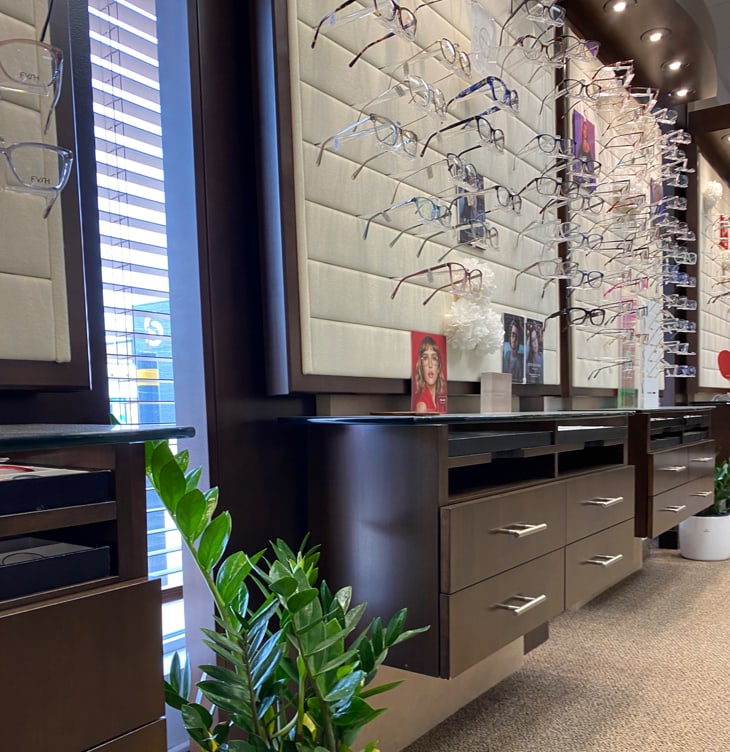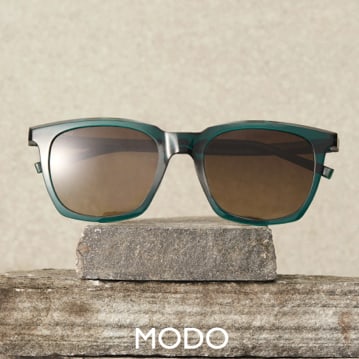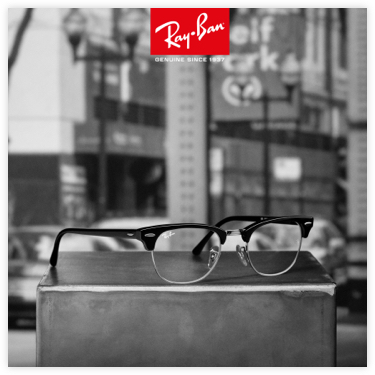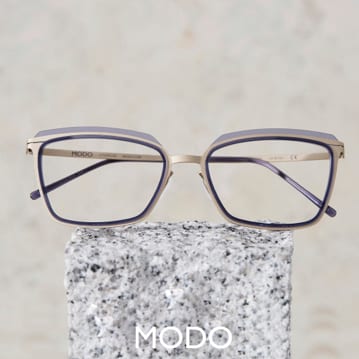Sometimes, spending a day out in the sun is one of the most pleasant ways to enjoy your time. However, the sun isn’t harmless; it can quickly damage your eyes if you aren’t careful. Exposure to the sun’s rays increases the risk of all kinds of long-term eye conditions, but there’s one thing often forgotten about—the risk of a sunburn.
If left unprotected, the clear tissue at the front of your eyes can easily be sunburned by UV radiation, and quickly cause significant discomfort and irritation. When you’re outside—whether in the winter or summer—you should always try and protect your eyes from the dangers of UV radiation.
What Is UV Radiation?
Ultraviolet radiation—often called UV rays—is a type of invisible radiation coming from the sun. There are three main types:
- UVA
- UVB
- UVC
While most UVC rays are blocked by the atmosphere, UVA and UVB rays easily reach the earth’s surface. These rays are an essential part of life on Earth.
The Dangers of UV Exposure
When we’re exposed to UV radiation, our bodies naturally produce vitamin D. However, UV rays aren’t entirely harmless—overexposure is closely linked to all kinds of problems. UV exposure significantly increases the risk of:
- Cancer
- Cataracts, where your eye’s naturally-clear lens begins to cloud
- Age-related macular degeneration, which affects your central vision
- Pterygium, a growth on the surface of the eye
These can easily have negative effects on your health and quality of life. However, it’s not just about the long-term problem; UV exposure can quickly lead to a condition called “photokeratitis.”
What Is Photokeratitis?
If you’ve ever spent too long outside, you’ve likely dealt with a sunburn. That red, stinging, irritating feeling—it’s rarely pleasant and can quickly put a damper on your day.
Most people don’t know it, but your skin isn’t the only part of your body that can get sunburned. When we’re out in the sun, our eyes can easily get sunburned, leading to photokeratitis. This condition develops when the cornea—the clear tissue at the front of your eye—is damaged due to UV exposure.
Symptoms of Photokeratitis
Photokeratitis can have several symptoms, including:
- Redness in the whites of your eyes
- Pain and irritation, similar to a regular sunburn
- Watery eyes
- Blurry vision
- Sensitivity to light
While these symptoms may seem minor, they can be incredibly uncomfortable. Usually, they’ll go away within a few hours or days. If you ever notice your symptoms worsening, it’s crucial to seek medical attention. While photokeratitis is a common condition, the irritation can also be a sign of something else.
Don’t put your vision at risk; if you ever notice pain or significant discomfort, immediately contact a medical professional.
How to Treat Sunburnt Eyes
If you think your eyes are sunburnt, it’s crucial to get out of the sun as soon as you can. Don’t wait for symptoms to worsen! Instead, try to:
- Stay indoors or find a shaded area to protect your eyes from further UV exposure.
- Use a cold compress over your closed eyes to relieve discomfort and reduce inflammation.
- Take over-the-counter pain relievers such as ibuprofen or acetaminophen to help manage pain.
- Use artificial tears or lubricating eye drops to soothe dry and irritated eyes.
Make sure that you don’t rub your eyes, and avoid contact lenses until you’ve recovered; these actions can easily irritate your eyes and make your symptoms worse. Instead, take things easy and let your eyes heal.
Tips for Preventing Sunburnt Eyes
With photokeratitis, prevention is often easier than treatment. Protecting your eyes from UV damage is key; this can lower your risk of long-term problems while preventing sunburn in the first place.
Try to:
- Stay in the shade whenever possible, especially during peak sunlight hours (10 a.m. to 4 p.m.).
- Wear a wide-brimmed hat to provide extra protection for your eyes.
- Be extra cautious around reflective surfaces like water, snow, and sand, which can intensify UV exposure.
And sometimes, the easiest approach is one of the most effective. Don’t forget your sunglasses!
The Importance of Proper Sunglasses
Investing in proper sunglasses is one of the most effective ways to protect your eyes from UV radiation. Whether you’re looking for a prescription or non-prescription pair, your optometrist will be able to help.
Make sure you’re getting a pair of sunglasses that block 100% of UVA and UVB radiation. Wraparound shades are often ideal—especially if you’re spending a lot of time outside—as the frames can offer protection around the edges of the lenses themselves.

Polarization plays an important role in your comfort as well. Polarized lenses can block the sun’s glare from reflective surfaces like water and snow, which can make your vision more comfortable when outdoors. However, it’s important to note that polarized lenses can make screens significantly harder to see.
By purchasing a pair of proper UV-blocking sunglasses, you can continue enjoying your time out in the sun—without worrying about photokeratitis and irritation.
When to Talk to Your Optometrist
Preventing sunburnt eyes is one of the simplest ways to make sure you can spend the summer in style. Whether you’re looking for a pair of proper sunglasses or in need of treatment for sunburnt eyes, our team at Old South Optometry is here to help. Don’t let photokeratitis cast shade over your summer; instead book an appointment with our team today!











